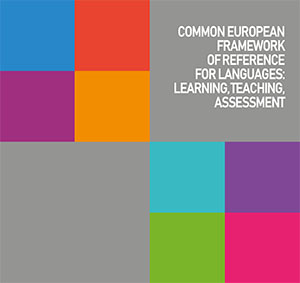Extracts of the Recommendation (2008) 7
The Committee of Ministers […]
Acknowledging the right to quality language education as an essential part of the fundamental right to education;
[…]
Aware of the growing need to equip all Europeans for the challenges of intensified international mobility and closer co-operation not only in education, culture and science but also in trade, commerce and industry and indeed in all walks of life;
[…]
Recommends that governments of member states […] use every available means in accordance with their constitution, their national, regional or local circumstances and their education system to implement the measures […] with respect to the development of their language education policies.
National, regional and local education authorities are invited to […]
- create and/or maintain conditions favourable to the use of the CEFR as a tool for coherent, transparent and effective plurilingual […] and as a basic reference tool to:
- promote and facilitate co-operation among educational institutions within and between member states;
- provide a sound basis for the mutual recognition of foreign/second language qualifications;
- provide guidance for the diversification of language learning within educational systems in order to maintain and develop plurilingualism among citizens of Europe as a means of knowledge building and skills development, with a view to enhancing social cohesion and intercultural understanding;
- encourage learners, teachers, teacher trainers, course designers, textbook authors, curriculum developers, examining bodies and education administrators to:
- adopt a learner-focused, action-oriented, competence-based approach;
- take into consideration the social and cultural dimensions of language learning;
- consider and treat each language in the curriculum not in isolation but as part of a coherent plurilingual education;
- take into consideration, in their analysis, the specific needs of the different groups of learners and of the general needs of modern European societies;
- situate their efforts concerning language teaching in relation to the CEFR in a transparent way;
- promote the use of the European Language Portfolio (ELP), which is based on the CEFR.



